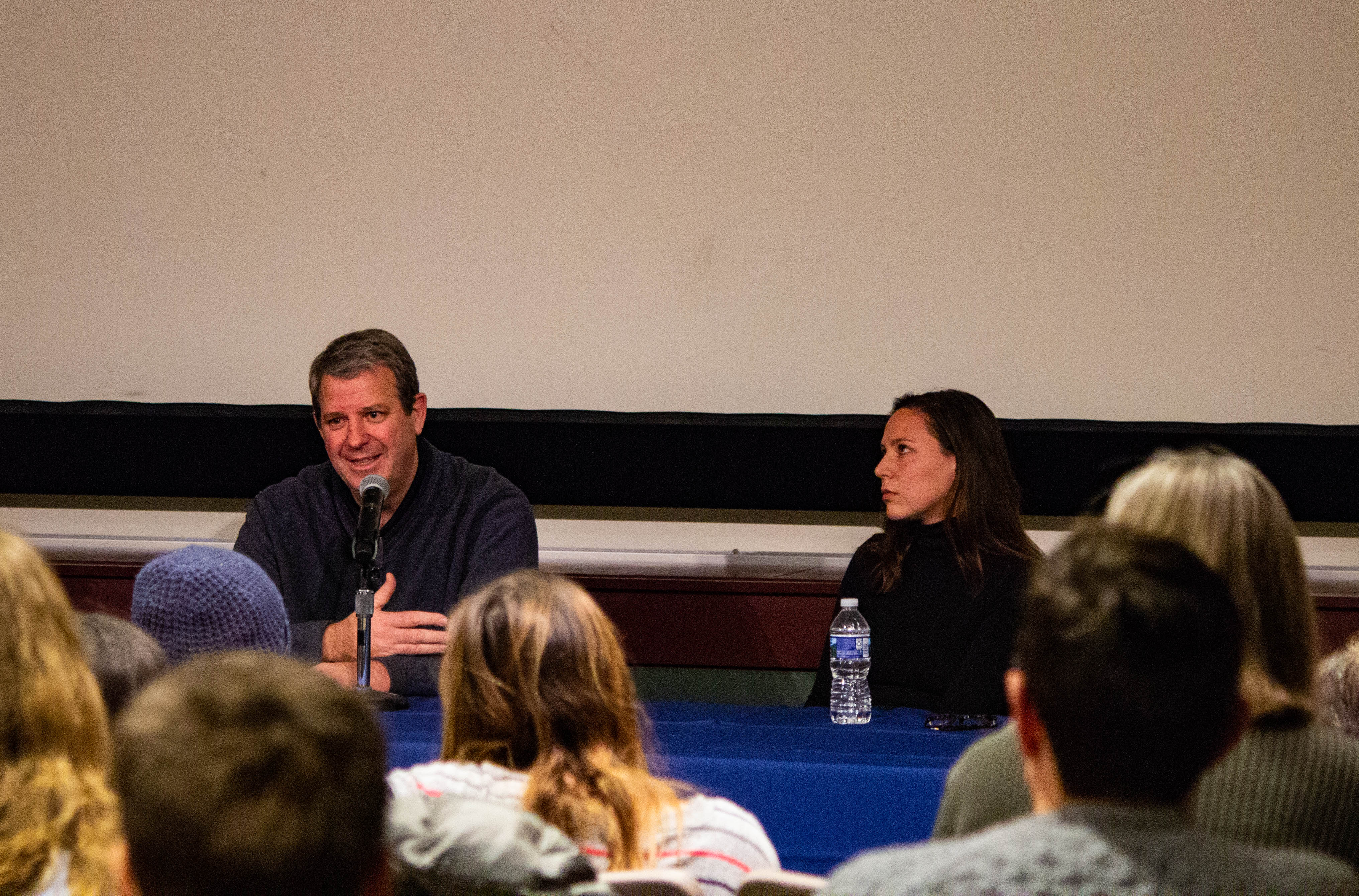
Professor William Bowman and Professor Charlotte Werbe present on a panel following a showing of “Who Will Write Our History?” (Photo Sam Hann/The Gettysburgian)
By Kyra Pfeiffer, Staff Writer
Inspired by her experience at the Jewish Film Festival, Gettysburg Alumni Lauren Ashley Bradford ‘18 reached out to college officials with the idea of showing Roberta Grossman’s film “Who Will Write Our History?”
The documentary, approximately 90 minutes in length, is an emotion-evoking realistic film portraying the writers as witnesses to the Onyeg Shabes Archives.
On Wednesday, January 30, the film was shown in Joseph Theater in honor of Holocaust Remembrance Day. “Who Will Write Our History” follows the story of the Archives through the eyes of Emanuel Ringelblum, head of the Jewish Self Help of Warsaw organization, and Rachel Auerbach, a Jewish journalist.
During World War II, the creation of the Archives by Ringelblum coincides with the closing of the Warsaw Ghetto in 1940 and continues until 1944 when Ringelblum and his family were captured by Nazis and executed.
The film skillfully navigates the hardships of the ghetto’s citizens, amplifying their journey through poverty, hunger, and Nazi control through the documents acquired by Ringelblum and his associates, Auerbach and Hersh Wasser, amongst 58 other members.
Secretly buried before the liberation of Warsaw, an archaelogical-esque dig was undertaken to acquire the documents compiled in the Onyeg Shabes Archives. Though the third cache has not been found, the documents, diaries, art, and other evidence within the two acquired caches has spawned both the book and movie “Who Will Write Our History?”
Together, this coverage has worked to give exposure to the Onyeg Shabes Archives for what Emanuel Ringelblum intended it to be: evidence that allows the oppressed Jewish population to tell their tragic yet brave stories against Nazi propaganda that framed Jews in a negative light. The 60,000 pages of personal accounts and photographs are currently preserved in the Jewish Historical Institute in Warsaw.
Following the showing of “Who Will Write Our History?” a question and answer panel was held in Joseph Theater. Amongst the panelists were Charlotte Werbe, Assistant Professor of French, and William Bowman of Gettysburg’s History Department. Answering questions from students and viewers, the panels provided post-film insight on themes featured in the documentary using their own professional research and opinions.
Their answers brought to light the development of the Holocaust historiography, its discussion geographically and over different time periods, as well as educated remarks on Holocaust literature and film.
